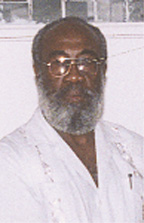The Guyana Human Rights Association (GHRA) yesterday urged the government to withdraw the nomination of Dr. James Rose to the Integrity Commission, warning that his alignment to the ruling party would shake public confidence in the body.

The human rights group has also raised concerns and called for a review of qualifications of the “exclusive” religious membership of the commission, while emphasising the need to address the current role of religion in public life.
In the midst of an ongoing public debate about the Commission, the GHRA yesterday cautioned that Dr. Rose’s appointment would “exacerbate the controversy” surrounding the commission. “It is patently clear that the appointment of a person from the ruling party’s Electoral List whose professional career has benefited substantially from party support will not enhance public confidence in the Commission,” the group said in a statement.
It added that it is incumbent on the membership of the Commission to make known publicly its views on the appointment of a proposed Chairman who has a public image of “alignment” to the ruling PPP/C. “Such an image will inevitably have a ‘chilling effect’ on the wide range of persons who must lodge confidential information with the Commission,” the group further stated.
As part of new consultations on the Commission’s membership, the government nominated Dr. Rose to be Chairman, as well as Savitri Sukhai to represent the Hindu community.
In addition to its concerns about Dr. Rose’s nomination, the GHRA, however, said the “exclusively religious membership” of the Commission is a further troubling feature. Apart from the Chair, the members of the Commission are chosen from the Christian, Muslim and Hindu religions. However, the GHRA noted that the section of the law relevant to membership states that members other than the Chair shall be appointed “from among persons appearing to (the) President to be qualified as having the experience of, and shown capacity in, law, administration of justice, public administration, social service, finance or accountancy or any other discipline.”
While conceding combined with experience in one of the designated areas, being a Minister of Religion would not preclude a person from eligibility, the GHRA stated that valid questions arise, when all of the members appear to be chosen primarily by virtue of being leaders of religious organisations. Further, it noted that such an approach also suggests unacceptable gender bias since women have never been leaders of the religions represented.
“The Integrity Commis-sion is a statutory body of the State and all qualified citizens – whether religious or secular – have a right to see themselves and to be seen as equal candidates for such a Commission,” the group observed, adding that if the current membership were secular it would be under greater public scrutiny to exercise vigilance than has been required of the Integrity Commission to date.
Meanwhile, the GHRA also homed in on the role of religion in public life in Guyana, saying that it is currently being defined more by the ruling party than by the religious communities themselves. “Creating official positions for religious advisors in the Office of the President and including members of the Integrity Com-mission on official trips abroad add to the blurring of lines between political and religion activism,” it said, adding that religious leaders should be less complacent over where they tread. “As a cautionary tale one might recall that while the formal status of religion in public life has never been higher, religious influence on public policy has never been lower. By way of contrast, in the 1970s and 80s when religious institutions were firmly excluded from public life, religious influence was dynamic, respected and impactful.”
Saying many religious leaders in Guyana are disturbed by the recent developments, the GHRA suggested that a first step to address the situation might be to start a public conversation on the appropriate role for religion in public life.
It explained: “A clear-sighted and disinterested reflection on whether religious influence is not more effectively exercised entirely outside of political institutions than from within would be extremely helpful for the society in general.”
